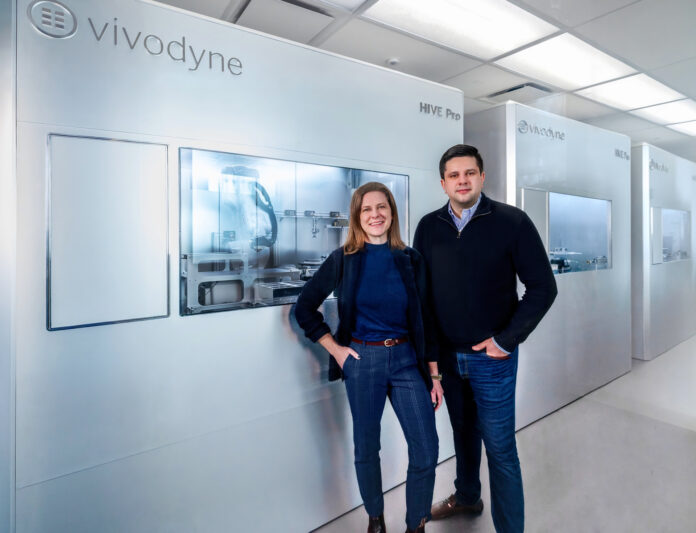SAN FRANCISCO & PHILADELPHIA — Vivodyne, a biotech startup developing lab-grown human tissue platforms for drug testing, has secured $40 million in Series A funding to accelerate its mission of replacing animal testing with clinically predictive, human-based models. The funding round, led by Khosla Ventures, will support the launch of a fully robotic 23,000-square-foot facility in South San Francisco, dramatically expanding the company’s capacity to produce human data for pharmaceutical research.
The announcement comes amid growing momentum to move away from animal models in preclinical testing. Despite being a standard part of drug development, animal testing fails to predict human outcomes in nearly 95% of clinical trials. Vivodyne aims to close this gap by using robotics and artificial intelligence to grow and test tens of thousands of living, functional human tissues, offering a more accurate and scalable alternative for pharmaceutical companies.
Vivodyne’s system allows for large-scale drug testing on human tissues that replicate the complexity of real disease states, generating vast datasets from every experiment. These datasets include imaging, single-cell transcriptomics, and proteomics, providing unmatched insight into how human tissues respond to experimental therapies. The company’s fully automated platform produces over 10,000 tissue experiments per robotic run, enabling pharmaceutical developers to assess safety and efficacy with unprecedented precision—before entering costly clinical trials.
CEO and co-founder Andrei Georgescu called the existing reliance on animal testing outdated and ineffective. “A model that is only predictive 5% of the time isn’t a model,” he said. “Vivodyne is fundamentally changing how drugs move from the lab bench to human trials. We’re enabling human-ready drug candidates right from the start.”
Backed by top pharmaceutical companies, Vivodyne’s platform is already in use across the industry to test therapies including small molecules, biologics, mRNA-based therapies, and cell therapies. The company currently grows over 20 distinct human tissue types—ranging from liver and lung to placenta and lymph nodes—and is capable of modeling a wide range of diseases, including cancer, fibrosis, autoimmune disorders, and infectious diseases.
Vinod Khosla, founder of Khosla Ventures, emphasized the potential impact of Vivodyne’s technology. “Using robotics and AI, Vivodyne can grow and test over 100,000 different whole human tissues in just two weeks,” he said. “This brings pharma the clinically relevant insights they’ve needed for decades—before billions are spent on trials.”
With additional support from Lingotto Investment Management, Helena Capital, Fortius Ventures, and existing investors, Vivodyne plans to scale both its human tissue production and AI-driven drug optimization. The new San Francisco facility will serve as a central hub for these efforts, aiming to deliver a more reliable and efficient path from discovery to clinic.
By bridging the gap between preclinical research and human biology, Vivodyne hopes to reduce drug failure rates, lower development costs, and ultimately bring more effective treatments to market faster.


